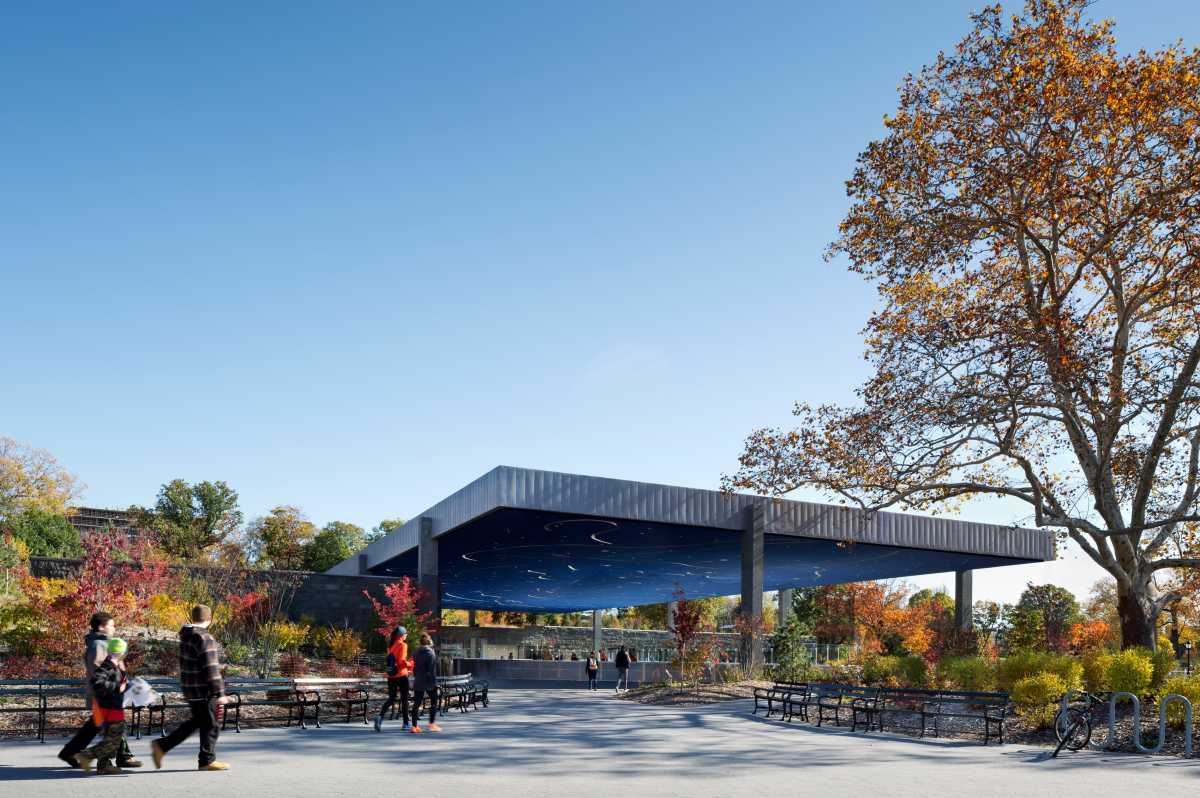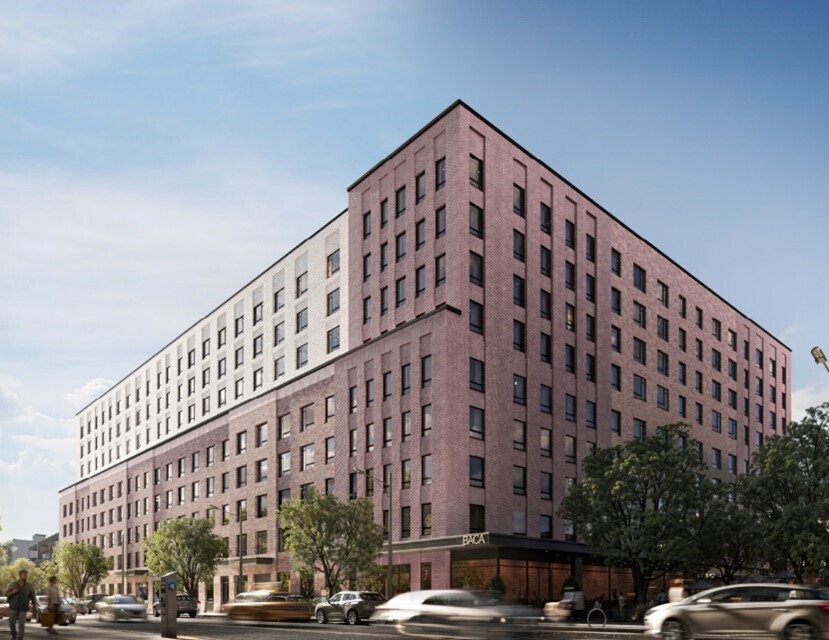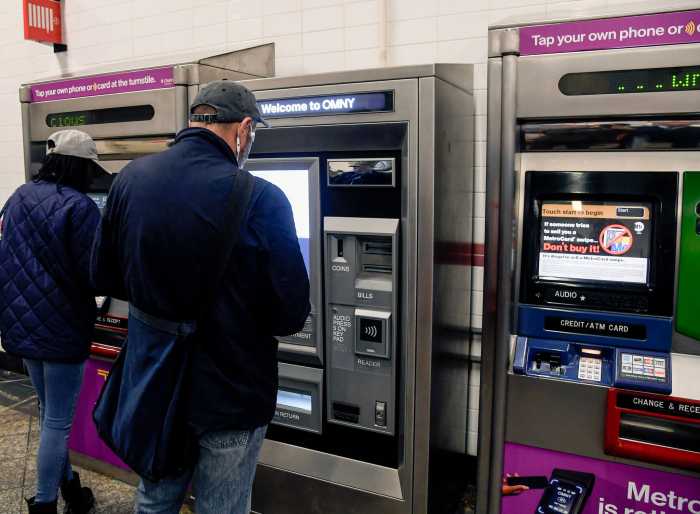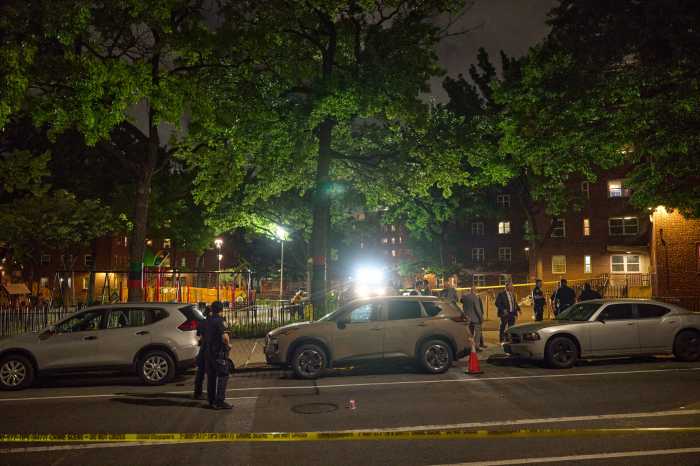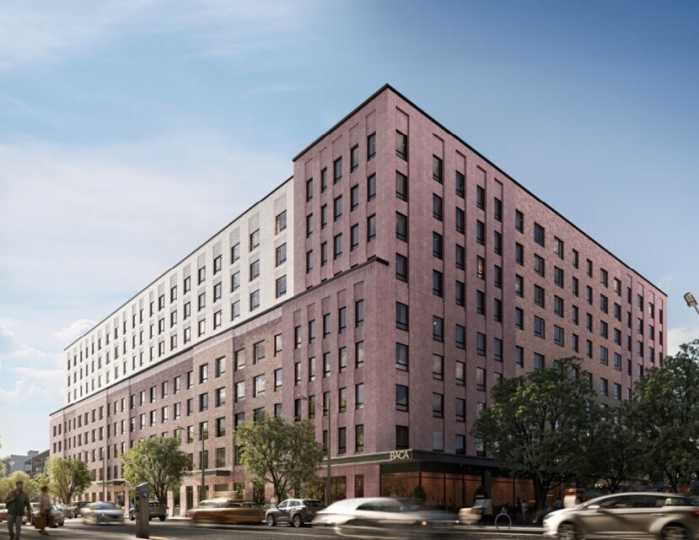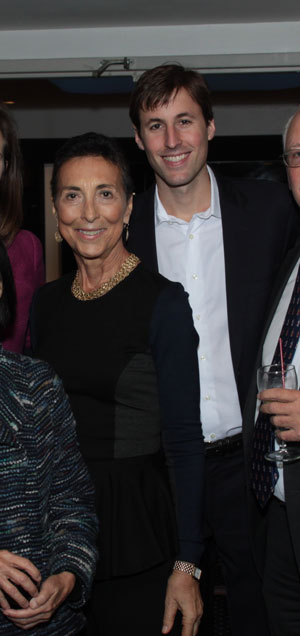
Catherine Abate and her son, Kyle Kliegerman, at the Oct. 22 fundraising cruise for the holistic healthcare clinic at 150 Essex St.
BY HEATHER DUBIN | Alternative medicine is gaining increasing acceptance in the Western world. In the case of Catherine Abate, president and C.E.O. of Community Healthcare Network (C.H.N.), she not only accepts alternative medicine — she firmly believes it saved her life.
Diagnosed with stage-four uterine cancer in May 2012, Abate’s positive experience with holistic medical practices prompted her to bring these same modalities to Community Healthcare Network’s Downtown Health Center, at 150 Essex St. on the Lower East Side. The nonprofit C.H.N. provides medical care to underserved New Yorkers at 11 federally qualified healthcare centers.
In an interview last week, Abate spoke about the new Essex St. integrative health center — which will incorporate alternative therapies with traditional medicine — as well as about her own personal journey dealing with her condition.
Abate has always worked in public service, striving to help others. An attorney, she is a former New York state senator, and before that was the commissioner of New York City’s Department of Corrections.
C.H.N.’s Essex St. center caters to 6,000 patients a year. According to Abate, this population has “a tremendous interest” in acupuncture, herbal supplements and medication, but lacks access to them.
“Medicaid and private insurance doesn’t cover it, and there’s a great need,” she said.
State, city and federal grants help cover the cost of medical services currently offered at the center. While there is a sliding-fee scale based on income, patients are never turned away.
Abate noted that C.H.N. centers are sited in the poorest and most underserved areas of the city. They have sites in every borough except for Staten Island.
The Essex St. center currently offers complete primary care, pediatrics, nutrition, social services and other basic medical care. While these services will continue, Abate wants to add holistic medicine as an integral component to improve patient health. The program is in the planning process, and Abate anticipates the new facility’s opening next February.
“It’s the perfect site to do this,” she said.
The demographic the center serves is mixed ages, with the majority of patients under age 50, while the ethnic breakdown is mostly Latino and Asian. Abate also noted that many patients suffer from chronic diseases, such as asthma, obesity, hypertension and diabetes. These patients are familiar with and eager to try alternative therapies that could potentially benefit them.
Thanks to federal money, additional exam rooms have already been constructed to accommodate the expanding center. As part of the holistic approach, there will be more time focused on personal nutrition. Yoga, acupuncture, energy healing, reflexology and meditation will also be part of the new program. Abate wants patients to take ownership of their care, and she thinks these new modalities will help them do this.
“We want the patients to feel better about their care, and improve communication between them and their provider,” Abate said. Three years ago, she started a health literacy program. Results show patients, during an office visit, do not receive useful information that encourages them to go home and change their lifestyle, which is often essential for dealing with their health problem.
“Whether it’s positive thinking about their healing, stopping smoking or eating healthy, or cleaning up their home environment from mold, or whatever,” she said, “there has to be better communication to really make them a partner in their healthcare.”
Abate feels this improved informational dialogue empowers patients, providing them with more balance and control, which will improve their overall health and well-being.
She understands this firsthand.
“I don’t think I’d be in the shape I am in today if I didn’t use the complementary and alternative-use therapies,” Abate said.
Her initial diagnosis, following her first operation in June 2012, gave her 12 months to live. Abate, who is in her mid-60s, turned to Western medicine for surgeries and chemotherapy, and saw an immunologist, which is a field she wants to implement at the center. But she also went to a life coach and energy healer, who taught her the power of the mind.
“Mind, body and spirit come together,” Abate said. “Everyone has the power to heal themselves. I had a lot of healing, and I’m not saying chemo didn’t have something to do with it. But even my oncologists would say, ‘It wasn’t just the chemo.’ ”
One doctor told Abate that he thought her mind was one of her most powerful weapons in her recovery.
The healthcare C.E.O. believes visualization, diet and acupuncture all help effect a change of attitude toward life.
“It adds up, I’m feeling strong,” she said. “I’m not totally cured yet, but I’m on the right path.”
Abate still receives some low-dose chemo treatment, but she has spent many months playing tennis, and, as she put it, is doing “quite well.”
She partially attributes her health status to alternative therapies.
“I’m not suggesting people turn away from Western medicine,” she said. “I’m suggesting Western medicine becomes that more effective when you also utilize holistic and integrative approaches.”
She used to receive holistic treatments weekly when she was sick, but now only goes every couple of weeks. Abate does practice daily visualization and takes herbal supplements.
“I wake up with gratitude every day,” she said. “I see the beauty in things and in people, and the promise of the world.”
To help foster this same hopefulness for others, Abate has submitted grants for the holistic program. She wants the therapies to be free or low-cost for patients.
With that goal in mind, a boat cruise fundraiser around Manhattan was held on the evening of Tues., Oct. 22, with 240 people paying $250 per ticket. Demonstrations of alternative therapies were conducted onboard the boat.



